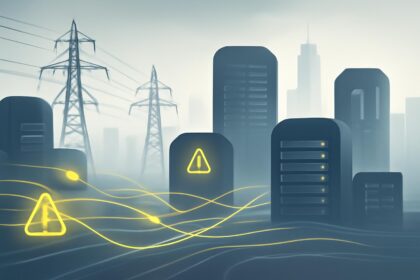US Energy Secretary Dismisses Net Zero by 2050 as Unattainable
U.S. Energy Secretary Chris Wright has openly criticized the widely endorsed goal of achieving net zero carbon emissions by 2050, labeling it “a colossal train wreck” and expressing skepticism about its feasibility. His remarks, made during an interview with the Financial Times ahead of the Gastech energy conference in Milan, underscore growing tensions within global climate policy discussions.
Net Zero Target Under Scrutiny
The net zero objective aims to balance carbon emissions with removal efforts to limit global warming to 1.5 degrees Celsius, a benchmark established in the Paris Agreement. Over 140 countries, including major emitters like the U.S., India, and the EU, have adopted net zero commitments with varying timelines. For developed nations such as the U.S., the target year is commonly set at 2050.
Wright, a former oil and gas executive, criticized the target as unrealistic and warned it could trigger severe economic hardship, calling it “a monstrous human impoverishment program.” While he acknowledges climate change as a significant global challenge, he has also criticized what he terms “climate alarmists.” Scientific experts have rebuked Wright’s statements as reflecting misinformation.
Trade and Regulatory Concerns
In addition to his skepticism about net zero, Wright has raised concerns about European climate policies potentially jeopardizing the U.S.-EU trade relationship. He specifically cited the EU’s Carbon Border Adjustment Mechanism and methane regulations as possible threats to the trade pact.
The EU has committed to investing at least $600 billion in various sectors by 2029 and plans to import $750 billion worth of U.S. liquefied natural gas (LNG), oil, and nuclear products over the next three years. These moves aim to reduce European dependence on Russian energy supplies.
Industry Perspectives on Energy Policy
Patrick Pouyanne, CEO of French oil major TotalEnergies, responded to Wright’s comments by emphasizing a pragmatic approach to energy policy. Pouyanne noted that European energy discourse has shifted from climate-centric concerns to prioritizing supply security and affordability, especially in light of geopolitical challenges such as the Russian war in Ukraine.
“Europe is importing fossil fuels, so our dependency is a problem,” Pouyanne said. He described the current energy debate as moving beyond ideology toward practical solutions balancing security, cost, and sustainability.
FinOracleAI — Market View
Secretary Wright’s dismissal of the net zero 2050 goal injects uncertainty into the energy transition narrative, especially in the U.S. and transatlantic markets. His stance could signal continued reliance on fossil fuels and slower adoption of stringent climate policies, which may benefit traditional energy sectors in the near term.
However, tensions over EU climate regulations could complicate trade relations and investment flows, posing risks to energy market stability. Investors should monitor regulatory developments and geopolitical dynamics influencing energy supply chains and policy frameworks.
Impact: neutral













